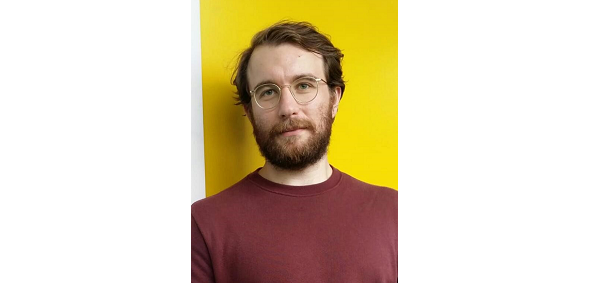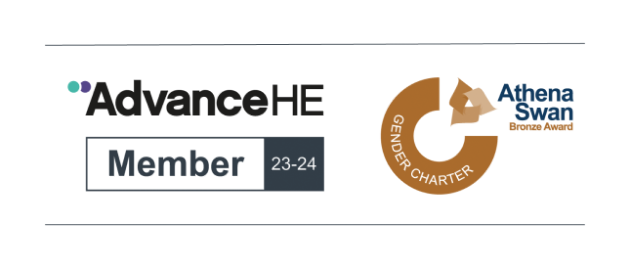
College:
Jesus
Email:
Supervisor:
Research:
My doctoral dissertation, which was handed in in September 2020, examined literary engagements with histories and ideologies of work and labour in the works of a key set of contemporary German-language authors, focusing primarily on Volker Braun, Elfriede Jelinek, and Herta Müller. Focusing on sex work, forced labour, and state socialist labour ideologies, I sought to show how these authors used their writings as a way of critiquing and questioning dominant labour ideologies, intervening in the treatment of work’s history in cultural memory, and at times, used certain forms of labour as vehicles for exploring other issues.
My next research project is entitled ‘Citizenship after Hitler: Continuity and Change in West German Citizenship Law and Naturalisation Practice in West Germany, from 1949 till the Present’. This project has grown out of work that I began in early 2019 relating to the German government’s handling of the naturalisation rights of the victims of National Socialist persecution and their descendants. My work on this issue was featured widely in the German and international press, and I served in October 2019 as an expert witness for a hearing on legislation relating to the matter in the Home Affairs select committee of the German Bundestag. You can watch the hearing here, and read my written reports to the committee here and here.
The new project focuses on how the German government and administrative authorities dealt with four main challenges in the area of citizenship law and naturalisation practice after 1949; the naturalisation of so-called ‘ethnic Germans’ (deutsche Volkszugehörige) from Eastern Europe; the treatment of the victims of Nazi persecution and their descendants; the implementation of gender equality in citizenship law in line with Article 3 of the German constitution; and the naturalisation of long-term resident foreigners. Aside from a series of significant laws in the 1950s, whose genesis has yet to be historically studied, German citizenship law remained largely unchanged until the reforms of 1990 and 1999. Despite this, administrative practice in this area changed significantly due to interventions by various executive authorities at the state and federal level, reflecting changing understandings of the limits and nature of national and political belonging.
I am currently working on two articles from this project. The first examines the genesis of the 1955 ‘Gesetz zur Regelung von Fragen der Staatsangehörigkeit’, with which the West German government sought to settle the legality of the mass naturalisations of ethnic Germans performed by the Nazis in the territories they had occupied during World War Two, and ended up creating the legal provision that would allow for the naturalisation of millions of ethnic German Aussiedler in the following decades. The law in its final form included a provision providing naturalisation rights for those persecuted under National Socialism, included only against the strong resistance of the Federal Government, and a provision granting a right to naturalisation to those who had served in the Waffen-SS. My article reconstructs the significance of the law as a way of reckoning with the recent Nazi past, both on a practical and symbolic level.
The second article examines the introduction of strict visa regulations by the West German Interior Ministry in 1954 for Israeli citizens and stateless Jews.
Scholarships/Prizes:
Studienstiftung des Berliner Abgeordnetenhauses, 2019-2020
Schröder Scholarship, 2016-2019
Clarendon Award, University of Oxford, 2015-2016
DAAD Scholarship for Graduates in All Academic Disciplines, HU Berlin 2014-15
Teaching:
In the past, I have taught undergraduate translation, twentieth-century women’s writing, lectured on Hegel and Marx, and run modules on representations of queer bodies for CS5. I am available for undergraduate supervision and supervision of YAPs and ODs in twentieth and twenty-first century German literature for 2020-21.
Conference papers:
- ‘Art. 116 Abs. 2 GG and the Consequences: The Naturalisation Rights of NS-Verfolgten and their Descendants, 1949-2019’, presented at the Annual Conference of the Association of German Studies in Bristol, September 2019.
- ‘Sex Work and Value’. Presentation as part of the conference ‘Queer/Marxism 2’, Princeton University, 6-8th March 2019.
- ‘“die wahrheit ist ein dreck”: Documentary Forms, Socialist Classicism and the Arbeitswelt in the Work of Ronald M. Schernikau’. Presented as part of a three-day seminar on documentary fiction and post-industrial worlds of work and labour at the German Studies Association Conference in Pittsburgh, Pennsylvania, 27-30th September 2018.
- ‘Zum Nachlass Ronald M. Schernikaus’. Presented at the HU Berlin as part of the yearly meeting of the network ‘Literature in Divided Germany’, 20th July 2018.
- “Zur Kritik an Lossungssprache im Werk Volker Brauns”. presented as an introduction into an interview with Volker Braun at the HU Berlin, 9th July 2018.
- ‘“Das Werkzeug bin ich”: Slavery, Subjection and Human Instruments in Herta Müller’s Atemschaukel’. Presented a the conference ‘Economic Subjects in German and Comparative Culture’, Jesus College, University of Cambridge, 5-7th of July 2018.
- ‘Martin Dannecker Reimut Reiche’s Nicht der Homosexuelle ist pervers, sondern die Situation, in der er lebt’. Presented as part of a two-day workshop on ‘Queer/Marxism’ at the HU Berlin as part of the HU–Princeton Strategic Collaborative Programme, January 2018.
- ‘Queer Theory and Normative Confusion: Normalisation, Normativity, Possibility’, given at the 41st annual German Studies Association conference in Atlanta, Georgia, 7th October 2017.
- ‘Queer Theory as a Normative Enterprise? Rethinking Queer Theory’s Normativity with Contemporary German Sozialphilosophie’, Association of German Studies Conference at Warwick University, September 2017.
- ‘“Zum Haupthelden unserer Bücher müssen wir die Arbeit machen”: Working through Working in Volker Braun’s Machwerk’, delivered at the Cambridge German Graduate Conference on ‘Aesthetics and Politics’, 13th May 2017.
- ‘“Nur die Arbeit hilft gegen das ganze schlimme Leben”: Lebenslähmung and Busy-Bodies in Rainald Goetz’s Irre’, delivered at the Oxford German Graduate Symposium on ‘Motion’, 29th April 2017.
- ‘“ein kleines delay–’: Ästhethische Eigenzeit and Resisting Social Acceleration in Kathrin Röggla’s wir schlafen nicht’, delivered at the conference ‘Syncing...Subject, Media, Society’, UC Berkeley, CA, February 2017.
- ‘”It was a strange conviction that I had, that I could somehow make these boys’ lives better, as by a kind of patronage”: Cruel Compassion in Hollinghurst’s The Swimming-Pool Library’, delivered at the ’Writing Affect’ conference at the Humboldt-Universität zu Berlin.
Publications:
- ‘Re-Forged or Deformed? Forced Labour, Human Instruments, and the Critique of the Gulag System in Herta Müller’s Atemschaukel’, Seminar: A Journal of Germanic Studies, 57.1 (2021). [accepted for publication]
- ‘Seeing the Human in the (Queer) Migrant in Jenny Erpenbeck’s Gehen, Ging, Gegangen and Terézia Mora’s Alle Tage’, in Queering German Culture, ed. Leanne Dawson (Rochester, NY & London: Camden House, 2017)
Popular-Academic Publications:
- ‘Besser spät als nie. Die Mühlen der staatsangehörigkeitsrechtlichen Wiedergutmachung seit 1949’, Jalta. Positionen zur jüdischen Gegenwart 7 (2020): 73-79.
- Together with Ben Miller: ‘I Embrace You All: Ronald M. Schernikau and the Queer Left’, LA Review of Books.



